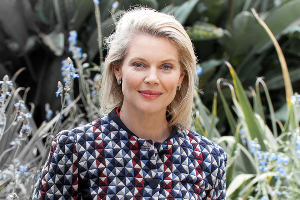
They are offering cashbacks on loans and could even move to slash their mortgage interest rates over the next year as a big chunk of mortgage holders come off their low fixed interest rates taken out over the past couple of. years.
CoreLogic’s latest Buyer Classification report shows about 48% of loans are fixed and due to be refinanced in the next 12 months.
To entice new customers, Kiwibank is offering 1% of any new home loan as a cash contribution, up to $10,000 while Westpac is offering $5,000 for new home loans over $500,000. Kiwibank says its offer is aimed at putting more money in the back pocket of customers at a time when living costs are rising.
A 28.4% fall in house sales over the year to the end of May has prompted the banks to focus on refinancing and borrowers can expect better deals if they shop around.
Residential property sales are expected to plummet further as interest rates rise, immigration creeps up only slowly, consumer confidence weakens and credit is difficult to source.
Fears of further interest rates hikes over the 7% mark have fuelled a surge in borrowers locking in longer-term fixed rates.
ASB says there has been an increase in borrowers opting for three- to five-year terms for their mortgages and a substantial number of mortgage holders had part of their mortgage on longer terms, twice the number of 2021.
Cash buys plenty
However, cash is still king for residential property buying.
CoreLogic’s Buyer Classification data shows the most striking change in recent months has been for cash multiple property owners (MPOs market share rising from as low as 9% in October last year to now sit at 14% across April/May this year.
CoreLogic chief economist Kelvin Davidson says admittedly, there are some important caveats, for example, some of these purchases may not really be cash – instead just made using the funds freed up by reshuffling debt on other properties in a portfolio.
“It’s possible there are some temporary effects too, i.e. people who have bought but also still own their previous property because they haven’t been able to sell it yet, or even ‘accidental landlords’, who have actively chosen to keep their previous property and rent it out rather than sell into a softer market.”
He says while cash MPOs market share has risen, the number of purchases being made by them has fallen – it’s just the decline has been smaller than for the other buyer groups.
“Even with these caveats, in an environment where credit is harder to secure and mortgage rates have risen sharply, as well as some potential ‘bargains’ starting to emerge, it stands to reason people with larger equity bases and/or buying with cash will be enjoying the current conditions.”
For mortgaged MPOs, their share of purchases in May was 23%, much where it’s been for the past three to four quarters. This follows the cyclical peak of 29% in the first quarter of last year - before the 40% deposit requirement and the removal of interest deductibility.
Davidson says while mortgaged MPOs’ share is lower than it used to be, they haven’t deserted the property market altogether.
Almost one in four buyers are still in this category, with some investors/MPOs able to find enough convincing reasons to buy property, with higher yielding stock and/or new-builds potentially a target.



Comments
No comments yet.
Sign In to add your comment